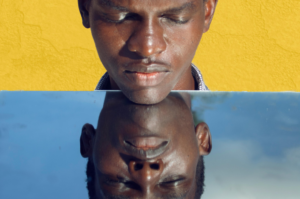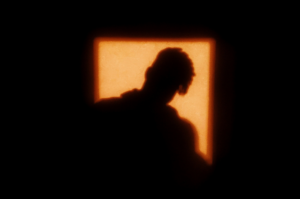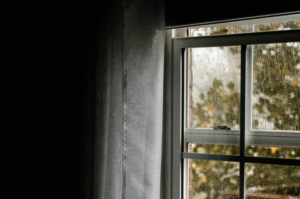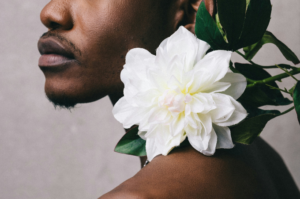
In the stillness of January, amidst the falling snow, I shake off the powdery dust from my boots, allowing the biting cold to seep into my feet. The clock reads 4 pm, and the sky is dark and bereft of stars. A silent snowfall drapes a soft blanket outside my window over parked scooters, resting bonnets, windscreens, and rear-view mirrors. This, my transient space for the next five months, becomes my immediate reality.
Shuffling into the kitchen, I am enveloped by a flurry of senses. I make myself a cup of lemon tea, the aromatic notes blending with the foreign scents from my Pakistani flatmate’s dinner and the sweet fragrance of vanilla and coffee lingering from my French flatmate’s afternoon tea. In this transient abode, inhabited by our migrant bodies, my mind wanders back to a place of familiarity, there, in the tiny kitchen of my childhood, with a steaming mug cradled in my palms. I willingly surrender to the delusions of home and warmth:
Above the stove, chaotic oil splatters coat ageing paint, creating a mural of a life well-lived and a family history etched in the incoherent streaks. The lord’s prayer, hanging askew above the crooked door frame, beckons the presence of an alienated deity. Across the table, where I now sit with crossed arms, peeling Formica cabinets hang precariously on broken hinges. Within this room’s deceptive neglect and aching skeleton, I remember this home—a space where I am both product and progenitor.
This is the sanctuary my mind retreats to, incredibly, when uncertain. This is where I conjure soothing images of my mother singing softly, hymns flowing from her tongue as she toils through the day:
Kuli chikaya cha vyose, chituŵa! Chituŵa!
Icho nchambura na suzgo, chituŵa! Chituŵa!
Zisumu’zo zikwimbika ni za zinthumi zituŵa,
Zinyumba nazo nziwemi, zituŵa! Zituŵa
There is a home with everything, A white (holy) one! A white (holy) one!
That [home] is, without problem, a white (holy) one! A white (holy) one!
The songs we sing are of the holy angels
Even the houses are good, white (holy) ones! White (holy) ones!
Beyond the door lies an empty house, its elongated corridor extending from the kitchen to guest chambers: A vacant expanse where I daydream of both peace and turbulent memory. Wandering. Transient
In September of 2023, I bid farewell to my childhood home. Physically, I wasn’t there to witness the tower of cardboard boxes or take in the echoes emanating from the rooms we had inhabited for over 20 years. But a profound sadness enveloped me from where I sat several kilometres away in Lilongwe. I mourned the idea of never opening the rusty black gate to be greeted by family pets or planting my bare feet in the garden, hopping from one fruit tree to the next. In more ways than I knew then, my mother had curated a space that embraced and welcomed all who encountered it. However, my nostalgia would be incomplete without acknowledging the dysfunction within our haven in Sunnyside. Although compelled to forget it on most days and romanticise it on others, the dysfunction that defined our home in Sunnyside remains an integral part of who we are as the bodies that created and experienced it.
I would be remiss to define myself without the sounds of my brother’s knuckles tapping against my window at 3 am (undoubtedly from a night out drinking), the ensuing anger and the compulsion to leave him out in the cold. It was there, enveloped by the sturdy but ageing bones of our childhood home, where I became defined and redefined by the prolonged silences, fear, and breaths held during my eldest brother’s illness, all reverberating within those walls.
That house bore witness to our laughter by day and embraced our desperate prayers for stability by night. That house crafted a mausoleum for, and of, our memories where, alongside my siblings, I learnt to live and thrive on the contradicting reality of being both the privileged and deprived, the western and the traditional, the secure and the unsure. One of the memories I find myself returning to fondly is the memory of unbridled laughter through the night within the space of the bedroom I shared with my brother and sister. This laughter was, on occasion, followed by the anger of our father, who would drag our naked and childlike bodies out of bed and into the empty, outstretched corridor so he could get a good night’s sleep. Although my father did not ritualise this action, nor did it happen often enough for it to occupy the space in my memory reserved for insidious and abusive intent, it did solidify a bond between my siblings and me that blossomed in those cold and naked nights. Through our temporary exile, we learned to care for each other, and it was in the cold and vacant corridor that our roles began to unfold: Older sister always in service of the other, brother to be held up and shielded from the biting cold, youngest sister co-dependent and emotionally attuned. In that house, we lay ourselves bare.
This year, I find myself many oceans away from that home, experiencing a cold that violently enters and settles in your chest. Before I travelled to Iceland, I often asked myself why I would want to live (even briefly) in a country my body was not made for. Here, the days are short, and rain, snow, and restless winds confront you on the same day. My reasons for coming here were as motivated by my academic interests as they were by a desperate need to get out. To breathe. I came to Iceland moved by the painful realisation that home no longer meant the literal and symbolic welcoming embrace of that childhood in Sunnyside. When I was being entirely honest with myself, I realised I no longer knew what home was:
Na visuzgo ntha virimo, mura mwe! Mura mwe!
Masozi nagho mulije, mura mwe! Mura mwe!
Ŵakumwa maji gha moyo ŵakumwona Yesu waŵo,
Na uweme wake wose, mura mwe! Mura mwe!
Even suffering is not there in that place! In that place!
Even tears are not there in that place! In that place!
Those who drink the water of life will see their Jesus,
And all his goodness, In that place! In that Place!
I spent most of 2023 in transit: Blantyre to Lilongwe, Lilongwe to Addis Ababa, Addis Ababa to Mzuzu, Mzuzu to Rumphi, and Rumphi to Nkhata Bay. Despite the numerous stops, I found no room of my own or fertile ground to sow a seed. Everywhere I went and with every pillow I dared to set my head against, my spirit wandered: untethered and untended. In 2023, I also stored my little chest of personal belongings. I said another tearful goodbye, and this time to my home of independence: The home I had curated with little trinkets from my travels, art that lined the yellowing walls and books that filled a hardwood case. In that space, I was everything I had always wanted to be and dared to dream of who I could be. I relished in my independence and offered my space to anybody who needed it from the day I opened its doors till every abandoned bottle of wine was cleared away and the last body shuffled past the threshold—a revolving and open door of bodies.
Admittedly, I abandoned a part of myself in each body that came in and out of my physical and spiritual home. I struggled to reconcile this fragmented self. I lost my sense of home.
It shouldn’t surprise you to know the idea of airports excites me! The feeling of being with other wandering spirits and packing my entire life in a single suitcase always seems to speak to me. When I get to where I’m going, I allow myself to entertain delusions of being at home. I make friends, lovers and enemies, knowing full well that I would one day pack up and leave, and the space I occupied would softly collapse around my absence. Home for me means the freedom to reinvent and occupy space just as I want to be, and home for me is more a journey than a destination. It is both a glorious and lonely existence.
So, where does someone like me find their home? Is home a metaphorical or material space? Are there bodies merely designed to wander, and does my inability to grow roots somehow symbolise a greater yearning? These are questions I perhaps will never find the answer to, and that reality brings me both solace and temporary distress. A search for identity and belonging is central to the daydream of having and finding a home. I found the joys of experiencing people at their best, worst and fullest in my wandering. Occupying a space of neither here nor there also makes it easier to share the deepest parts of yourself with the world without fear of rejection. Ironically, the idea of being a temporal reality forges intimacy and intense knowing of self and other. Wandering also means uncertainty, which strangely evokes resilience, and the acceptance of the temporal state births happiness in the act of journeying. In my reality of never belonging in one place or time, I come to a renewed understanding of what a home can be.
So, perhaps the question of home must remain open and ongoing. And maybe home isn’t the caress of grass against bare feet or the fall of snow outside a window. But for now, I will enjoy my current space, anticipate the next itinerary and boarding gate and ground myself with the soothing voice of my mother beckoning me to a home that I may not know but long for still:
Nanga uli’se tananganga, tirute! Tirute!
Wayamukutipokerera, tirute! Tirute!
Tikagezemo mwa Yesu, ndiyo wamkutitoweska,
Yesu wakafwira ise, tirute! Tirute!
Even how we have wronged each other, We must go! We must go!
He will welcome us, we must go! We must go!
We must bathe in Jesus, for he will make us beautiful,
Jesus dies for us. We must go! We must go!
Photo by Gaelle Marcel on Unsplash










Zaithwa May 24, 2024 06:20
A tempered and rhythmic read. Looking forward to more from this author !!